Image Optimisation For SEO
Image optimisation is a valuable SEO asset.
As consumer habits change, voice-search technology gains traction and the online business landscape becomes even more competitive, the need for properly optimised visual content on a website becomes even more critical.
If you get your image optimisation right, it can help drive organic traffic to your site, improve your visitor experience, reduce page loading times and create additional ranking opportunities.
These are some of the key things to consider:
- filename
- format
- image size
- titles, captions and ALT text
- mobile optimisation
- lazy loading
Not all websites need image optimisation though. It’s only really important for websites that will be found by people who are using an image search to find a particular product or where it’s relevant for a business to appear in images.
That said, image optimisation can be a key element of good website structure, which is good for search engines and for website visitors.
Image SEO Optimisation
This article unpacks each of the factors referred to earlier and will help website managers and business owners optimise images to boost their site’s SEO and increase their position in the search engine rankings.
- Firstly, the filename needs to reflect what the picture is about so that the search engines can understand your image and improve your SEO value. For example, an image with the default name of ‘IMG_776502’ isn’t helpful to Google and nor is it helpful to you when searching and finding images in your media library (particularly if you have a large one), but a descriptive and relevant filename will be. Remember to keep the file name brief, otherwise you run the risk of the search engines seeing them as spam because they think you’re just stuffing your image filenames with keywords.
- In terms of format, you need to choose those that are supported by most browsers. There are many different formats to choose from, but PNG and JPEG are the most common. PNG has a larger file size but the images are better quality, while you can adjust the quality level of JPEG to get the balance right. WebP is supported by both Chrome and Firefox, and there is also GIF and BMP.
- Size is another really important consideration when optimising your images for SEO. Inappropriately sized images can slow your loading speeds right down and that’s bad for business. You only have one or two seconds to grab and hold a customer’s attention and therefore you risk losing them if your images are sluggish. Loading speed is also a ranking factor on Google which is another important reason to get the size right. One of the best ways of reducing the size without compromising quality is to compress your images. The recommended image size is between 100-200kb, but for peace-of-mind, it’s best to keep them under 100kb. Photoshop is good for creating the right ‘byte-sized’ images or you can use free online tools like TinyPNG to compress images. Another option is to use a plugin, but ideally, it’s a job that should be done manually before any image is uploaded to the website.
- SEO-friendly titles, captions and ALT text can boost your SEO and help your website achieve better search engine rankings. Content should always be as accessible as possible and any important text (ie the title) should be in the image’s HTML because that’s how the search engines will find it. Remember, if you embed important text in your images, some users may not be able to see it when they hover their cursor over it. Some page translation tools may not be able to pick up embedded text either.
- Another really important factor to remember with regards to images on a website is that they must be responsive to the device that they’re being viewed on. In other words, they need to be tablet or mobile-friendly.
- Once all the images on your website have been properly optimised, you may want to consider enhancing the user experience with lazy loading. This allows the user to scroll down the page at the same time as the images are loading, rather than having to wait for the whole process to be completed before engaging with the content. Lazy loading makes a website more user-friendly and more appealing to the search engines.
As visitor expectations increase and attracting the attention of the search engines becomes even more challenging, it’s critical to look after every single factor related to your website’s performance – including image optimisation.
If you’re interested in discovering more insider tips and tools for image optimisation and other key aspects of SEO, have a look at The SEO School. This new self-managed course was expertly designed by Perth digital marketing expert Karen Dauncey, to help website owners grow their online presence and get to the top of the search engine rankings. Find out more about The SEO School here.
FREE Community
Are you frustrated customers can’t find your website?
Join my FREE online community for SEO tips!
seo Freebies
Are you the best kept secret on the internet?
It’s time to change all that with my DIY SEO freebies!
The SEO Course
Do you have a website that’s not performing? Learn SEO and put your website to work!
Other Blog Posts...
We talk about how technology and digital communications have literally put the whole world at our fingertips, but the reality is that we still love local. And that’s why we have to love local when it comes to SEO. Why does local SEO matter? Local SEO is important because the days of relying on a Yellow Pages
AI is on everyone’s lips. All the talk is about what AI can do and what it is going to be able to do. Some people even have it taking over the whole world, sending humans into a life of servitude to machines and computer systems. Should we fear the future? If you’re a content creator, here’s some good news. This
It’s no secret that SEO requires a multi-pronged approach in order to be effective. Some elements are simple and easy to implement while others require more technical expertise, but each one plays a role in great SEO. This article covers one of the most important elements of SEO…backlinks. Backlinks are links to
Want free SEO support?
Then join my Facebook community…

If you’re looking for a supportive online group that share the same mission – to get found online – then this community is for you!
From SEO updates and tips to Ask Me Anything Fridays, this is your space to pick-my-brains.








